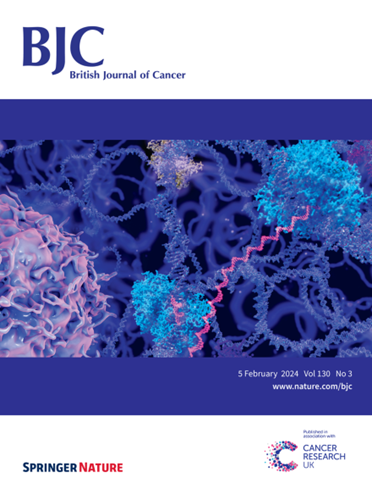BRCA 基因突变乳腺癌:基因检测未满足的需求、面临的挑战和治疗效果。
IF 6.4
1区 医学
Q1 ONCOLOGY
引用次数: 0
摘要
BRCA1 和/或 BRCA2 基因(BRCAm)的突变会增加罹患乳腺癌(BC)的风险,在未经筛选的乳腺癌患者中,约有 5% 的人存在这种突变。由种系 BRCAm(gBRCAm)导致的乳腺癌具有独特的临床特征,对多(ADP 核糖)聚合酶(PARP)抑制剂和铂类化疗药等 DNA 损伤药物的敏感性增加,对细胞周期蛋白依赖性激酶 4 和 6(CDK4/6)抑制剂的敏感性可能降低。鉴于gBRCAm BC在早期和晚期疾病中的治疗情况不断变化,及时确定gBRCAm状态对于促进为患者制定最有效的治疗策略至关重要。然而,由于转诊率不理想和/或基因检测的接受率较低,许多 gBRCAm 患者并未被发现。我们讨论了目前有证据表明 gBRCAm 患者对早期和晚期 BC 治疗的不同反应,包括 PARP 抑制剂、铂类化疗和 CDK4/6 抑制剂的疗效,以及正在进行的治疗创新和这些治疗方法的潜力。该报告还研究了当前的基因检测策略,包括关于谁和何时检测 gBRCAm 的最新指南,以及检测面临的挑战和如何克服这些挑战。本文章由计算机程序翻译,如有差异,请以英文原文为准。
BRCA-mutated breast cancer: the unmet need, challenges and therapeutic benefits of genetic testing
Mutations in the BRCA1 and/or BRCA2 genes (BRCAm) increase the risk of developing breast cancer (BC) and are found in ~5% of unselected patients with the disease. BC resulting from a germline BRCAm (gBRCAm) has distinct clinical characteristics along with increased sensitivity to DNA-damaging agents such as poly(ADP-ribose) polymerase (PARP) inhibitors and platinum-based chemotherapies, and potentially decreased sensitivity to cyclin-dependent kinase 4 and 6 (CDK4/6) inhibitors. Given the evolving treatment landscape for gBRCAm BC in early and advanced disease settings, timely determination of gBRCAm status is fundamental to facilitate the most effective treatment strategy for patients. However, many patients with gBRCAm are not identified due to suboptimal referral rates and/or a low uptake of genetic testing. We discuss current evidence for a differential response to treatment in patients with gBRCAm in early and advanced BC settings, including outcomes with PARP inhibitors, platinum-based chemotherapies, and CDK4/6 inhibitors, as well as ongoing treatment innovations and the potential of these treatment approaches. Current genetic testing strategies are also examined, including the latest guidelines on who and when to test for gBRCAm, as well as challenges to testing and how these may be overcome.
求助全文
通过发布文献求助,成功后即可免费获取论文全文。
去求助
来源期刊

British Journal of Cancer
医学-肿瘤学
CiteScore
15.10
自引率
1.10%
发文量
383
审稿时长
6 months
期刊介绍:
The British Journal of Cancer is one of the most-cited general cancer journals, publishing significant advances in translational and clinical cancer research.It also publishes high-quality reviews and thought-provoking comment on all aspects of cancer prevention,diagnosis and treatment.
 求助内容:
求助内容: 应助结果提醒方式:
应助结果提醒方式:


